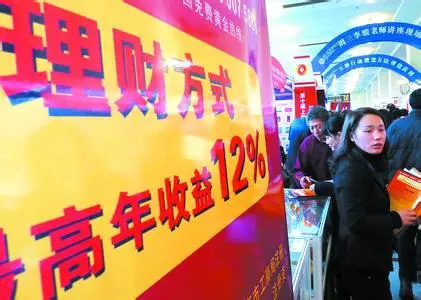The Chinese property market is facing a correction period as a downward trend emerged in more cities, with many local governments choosing to boost the market through lifting home purchase restrictions.
Hohhot, capital of Inner Mongolia Autonomous Region, on June 27 became the first to remove its home purchase restriction policy. Its government will no longer check buyers' eligibility for home purchases.
On July 10, Jinan, capital of Shandong Province, became the second city to waive restrictions, which were imposed in March 2011. Haikou, capital of Hainan Province, on July 18 became the latest to terminate restrictions.
Among 49 cities which introduced property policies, more than 20 have lifted home purchase restrictions.
Lifting restrictions will free up the property sector as administrative policies have been preventing the sector from reacting to market signals, said Li Zhanjun, a researcher with the China Real Estate Association.
While there are few disagreements that the market has reached a turning point, views are split on the magnitude of house price corrections.
The adjustment process may take a longer time than in the past, but the likelihood of a house price collapse remains small, thanks to the ongoing urbanization process, strong income growth, high saving rates and room for housing policy adjustments, said Zhu Haibin, J.P. Morgan China chief economist.
During most of the past decade, house prices have been rising on the whole, but data has shown a downward trend in recent months.
The National Bureau of Statistics released its house price index for June last week. New home prices in 55 of a sample of 70 major cities showed month-on-month drops last month, compared with 35 in May. Only eight cities saw month-on-month gains, down from 15 in May.
The average home price in the 70 cities slipped 0.47 percent from the previous month, marking a second consecutive monthly drop following a 0.15-percent fall in May.
Compared to one year ago, house prices rose in 69 cities in June, the 14th consecutive month of rise in 69 cities. Wenzhou continued to be the only city that registered a decline, falling by 5.3 percent year on year.
Tier-1 cities continued to lead house price inflation, but the magnitude eased further. Beijing saw its house price inflate 8 percent year on year in June, lower than 9.7 percent in May; Shanghai saw it expand 8.2 percent in June, lower than 11.3 percent in the previous month; and Guangzhou saw it inflate 7.7 percent in June, lower than 9.6 percent in May.
In the second half of the year, more cities will ease home purchase restrictions and analysts will be watching to see whether the housing market adjustment will stabilize, Zhu said.
Another thing to note is that the State Council earlier this year asked the Ministry of Land and Resources to propose a property registration system by the end of June, but the deadline was passed with little information released.
The government has been trying to set up a network which will collect property ownership information from different cities. This will enable the government to know who owns what. If a system is set up, it is likely to mean a drop in prices. Corrupt officials who own a number of houses would be forced to sell.
The system would also make it easier for the government to levy property tax on all homeowners, making it more expensive to keep a lot of homes.
This is not the first time the State Council has tried to build a property registration system. It had planned to build one in 60 cities by June 2012, and one in 500 cities by June 2013. But little information has been released.
 简体中文
简体中文

